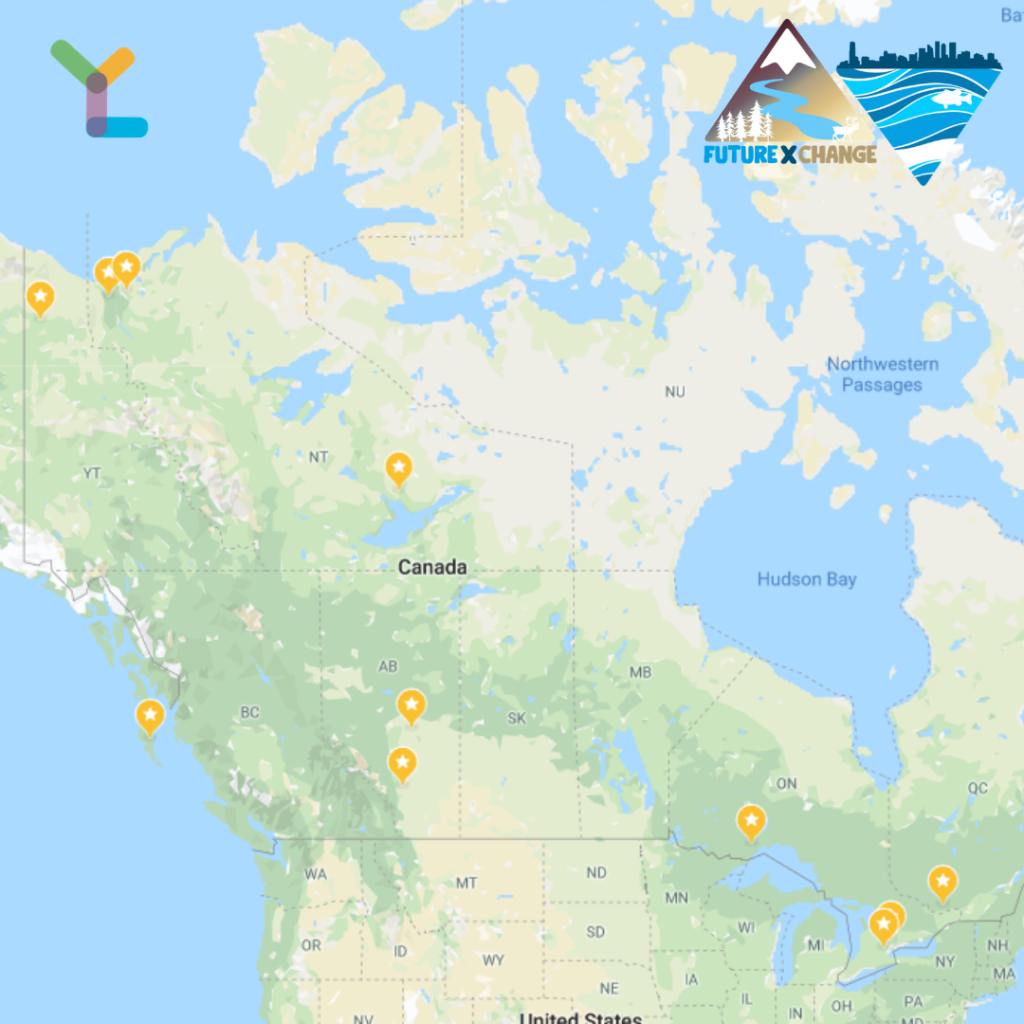FutureXChange: Translating Knowledge into Youth-Led Action: Youth Climate Lab & Gwich’in Tribal Council
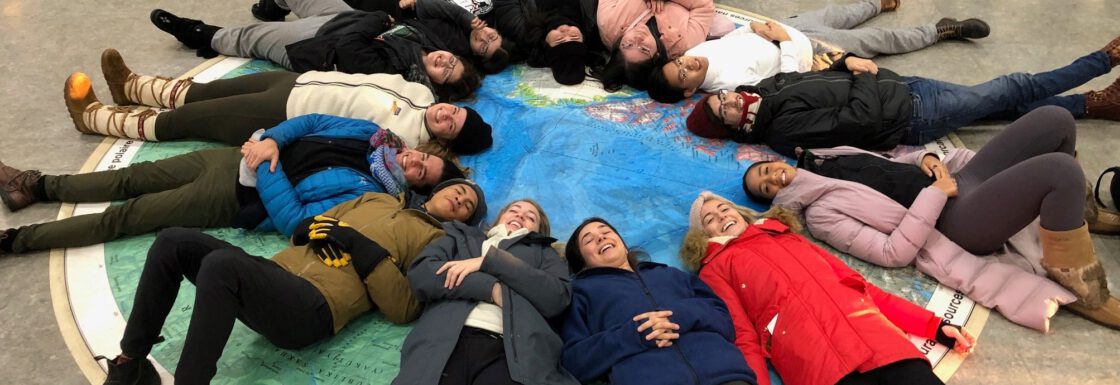
Projects Sponsor
Youth Climate Lab’s partnership with the Gwich’in First Nation and Vuntut Gwitchin First Nation created FutureXChange empowering Community Activators. FXC equipped fifteen “Community Activators” from seventeen to thirty years old – seven Gwich’in youth and eight youth from Southern Canada – empowering them to directly engage with 768 Canadians through community engagement projects and enabling them to reach over 205,000 Canadians through social media in climate awareness, education and capacity-building activities.
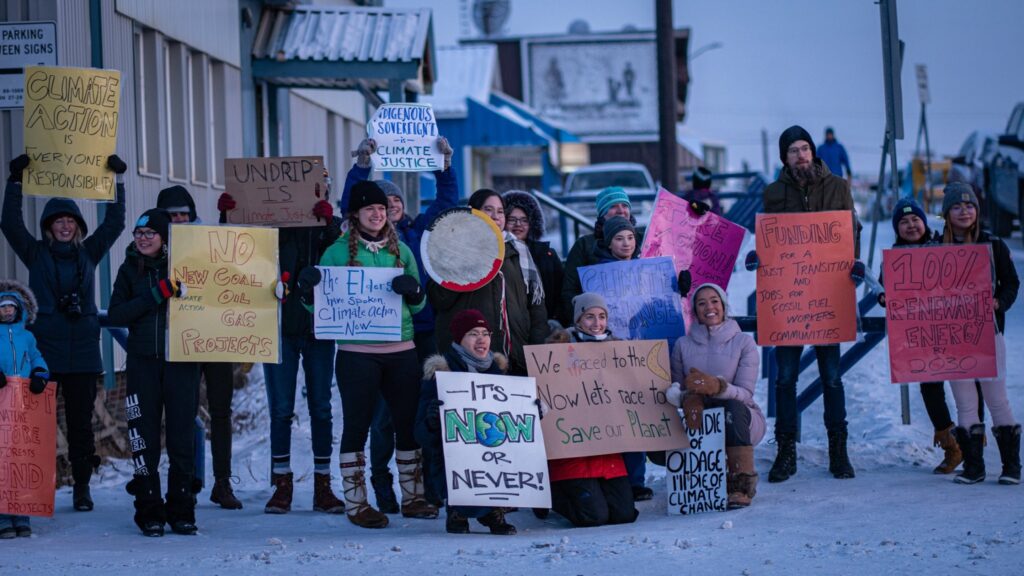
The Gwich’in are Canada’s northernmost First Nations in the NWT and Yukon and that puts them on the frontlines of climate change. For the Gwich’in that means dealing with the grave impacts of climate change in their day-to-day lives, taking action to help reduce their communities’ reliance on fossil fuels, all while enhancing their Nation’s climate resilience and adaptive capacity.
There’s a lot the Gwich’in can teach those to the south. Indeed the willingness of the Gwich’in to co-design FutureXChange (FXC) alongside Youth Climate Lab (YCL) stemmed from their willingness to share their lessons with the South and their continuing commitment to enabling young people to take meaningful action in the North.
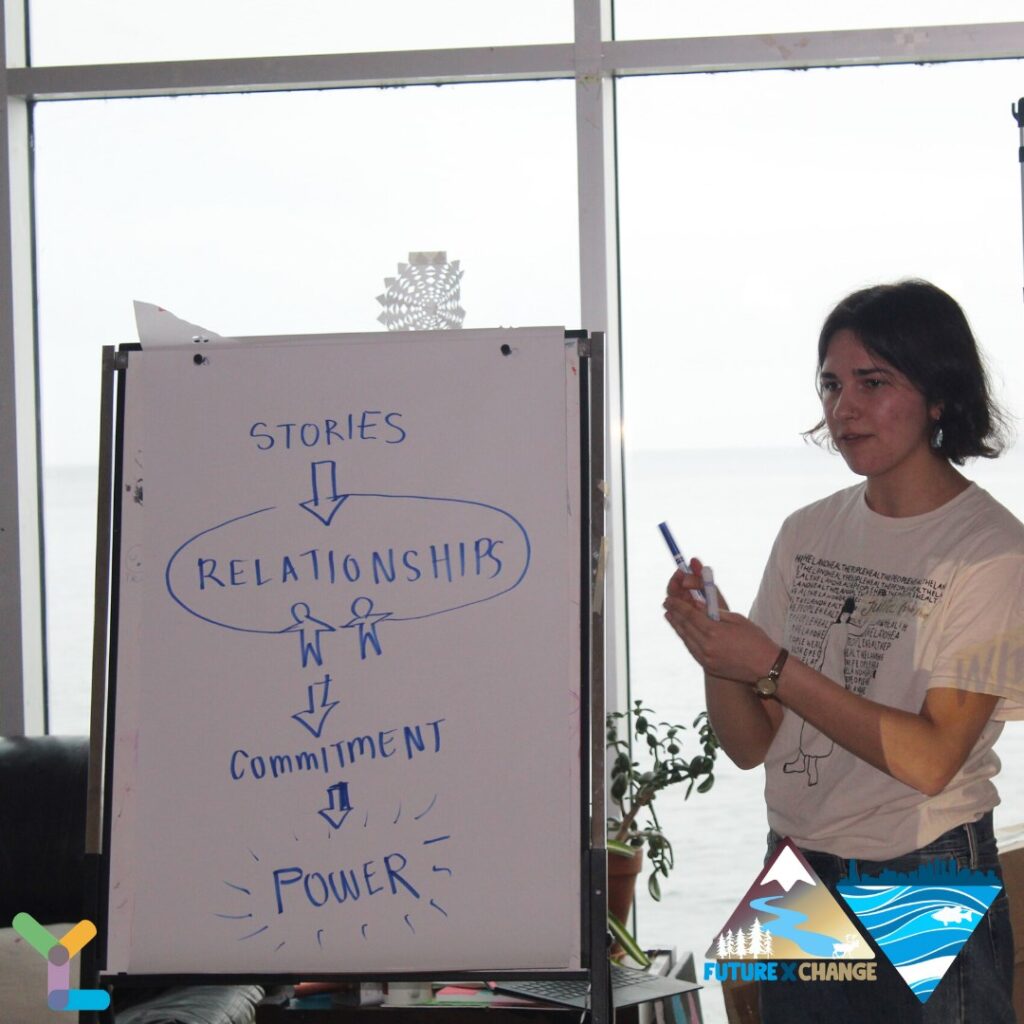
YCL recognized how important connecting Northern and Southern youth is to building a more holistic understanding of how Canadians are affected by climate change and in what ways they might take action. The organization’s considerable experience in designing, facilitating, and scaling youth-for-youth programs that focus on climate policy and entrepreneurship in Canada and around the globe was complemented by the experience and knowledge of the Gwich’in.
Gwich’in youth recognize the need to prepare themselves to take on today’s challenges, including climate change. Many are keen to develop skills in both their traditional teachings and in western science and policy . Youth in the South generally have many opportunities to participate in climate action but they rarely learn about climate change from people with lived experiences and related knowledge.
FXC set about equipping fifteen “Community Activators” from seventeen to thirty years old – seven Gwich’in youth and eight youth from Southern Canada – empowering them to directly engage with 768 Canadians through community engagement projects and enabling them to reach over two hundred five thousand Canadians through social media in climate awareness, education and capacity-building activities.
To help achieve this YCL prepared an online Policy hub, designed to engage both knowledgeable climate policy enthusiasts and those new to the field. They sought out feedback on their plan to create access to Traditional Knowledge and program design, which resulted in a better understanding of delivering programs in northern Indigenous communities.
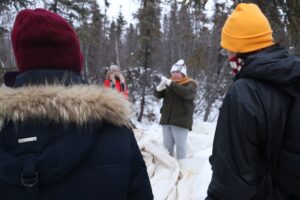
In October 2019 Northern Community Activators attended a two-day gathering in Inuvik, NWT. With the guidance of Elder Mary Teya and various Gwich’in leaders and knowledge keepers, the convening focused on understanding the principles and importance of Traditional Knowledge as it relates to climate change.
Southern Community Activators worked to gain an overview of climate policy in Canada, discussed current issues and how policy is shaped, and explored possible policy futures. This was achieved through an online climate policy curriculum, hosted on a newly developed Policy Hub. The five week online curriculum included assigned readings, videos to watch, and discussion questions and weekly webinars created spaces for discussion and with guest speakers.
All the Northern and Southern Community Activators came together in Inuvik, NWT from November 11th to15th, 2019. A variety of stakeholders brought a wide range of perspectives in a safe space conducive to collaboration and further exploration of pathways to act. Guests shared what their organization does, what projects they work on, and had time for questions and discussion. Community Activators learned about what climate realities and action looks like in different sectors and increased their understanding of specific pathways to action.
From December 2019 to April 2020 Community Activators were guided in designing, implementing and evaluating a community engagement project in their home communities, applying the knowledge and experiences from the first two phases of the program. At the same time the FXC team began sharing the lessons learned and experiences of co-designing and managing the program.
The objective had been to enable their Community Activators’ to directly engage over 280 people and reach over 150,000people online in climate awareness, education and capacity-building activities, a target that was handily surpassed.
The ultimate goal of FXC was to bring together youth from Canada’s North and South to help translate Traditional Knowledge and Western knowledge into concrete climate action, facilitating learning while building connections between future leaders in the fight against climate change in the south and their Northern Indigenous peoples colleagues.
The tremendous promise of this program will no doubt be realized in the years to come. In the words of Haida Gwaii Community Activator Julia Weder, “FutureXChange has empowered me through this mental shift from ‘I don’t know what to do, I don’t know how to do it’, to ‘Oh, we can do this, and so many people are supporting us,”
